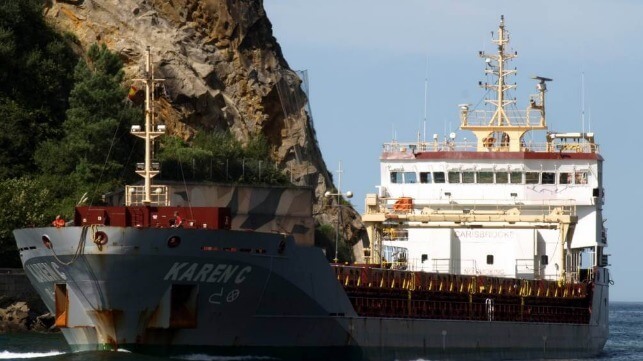Hydrogen Combustion Auxiliary Engine to be Tested in 2025 on UK Cargo Ship

An innovative project designed to validate hydrogen combustion engines for ocean-going vessels and lay the foundation to scale up the technology is set to proceed in March 2025 aboard a cargo ship operated by Carisbrooke Shipping. The partnership led by Carnot Engines and funded as part of the UK government’s initiatives in decarbonization has secured a source for hydrogen from biomass to power the 40-day sea trials.
Waste-to-hydrogen producer Compact Syngas Solutions has joined the effort and will supply 200 kg of hydrogen for the trials. Based in Wales, the company has developed an advanced gasification process that generates electricity, heat, and hydrogen gas from waste products. It employs materials including waste wood and other selected non-recyclable resources in its process. Compact Syngas Solutions was the recipient of a UK grant for £4 million to develop its biomass and waste-to-hydrogen plants including the addition of carbon capture to its hydrogen production.
“Sourcing hydrogen for our trial has proven harder than we expected, and we’re massively grateful to Compact Syngas Solutions for helping out,” said Jeremy Howard-Knight, head of business development at Carnot. “It’s incredible to think that these huge ocean-going vessels are being powered by waste wood that could have ended its days by rotting on a tip.”
Carnot was awarded £2.3 million in February 2023 to deploy a 50kW hydrogen auxiliary engine demonstrator working with Carisbrooke Shipping, Brunel University, and the Manufacturing Technology Centre while involving Bureau Veritas and the UK’s Maritime and Coastguard Agency for regulatory compliance.
The project is based on the assertion that smaller vessels running shorter ranges would be able to consider electrification or fuel cells, but for long-distance ocean-going cargo vessels this would not be viable. They assert that the cost, weight, and practicalities become prohibitive but their concept for a hydrogen combustion engine would be a compelling solution.
Carnot reports by pioneering the use of technical ceramics in combustion engines, it has eliminated major limiting factors to engine efficiency. It reports its engines have a break thermal efficiency of 70 percent, nearly double what is achieved by modern state-of-the-art engines. Carnot said the engines will massively reduce fuel consumption and costs. It highlights that above a certain air-to-fuel ratio, hydrogen combustion emits zero emissions with negligible levels of CO2, NOx, and PM.
The demonstration calls for testing of the engine at Brunel University and then it will be placed aboard one of Carisbrooke Shipping’s K-class cargo ships. Built in 2010 in China, the vessels are 6,800 dwt and have a length of 106 meters (348 feet). They operate at speeds of up to 11 knots with a MAK main engine and a Sandfirden diesel auxiliary engine.
The trial will run for 40 days in the Irish Sea starting in March 2025. The vessel will be operating between Bristol and Belfast. Carnot says the 50kW engine will be a precursor to 200 to 400kW auxiliary engines. Eventually, they expect to produce a 1 to 10MW main engine based on this technology.
No comments:
Post a Comment